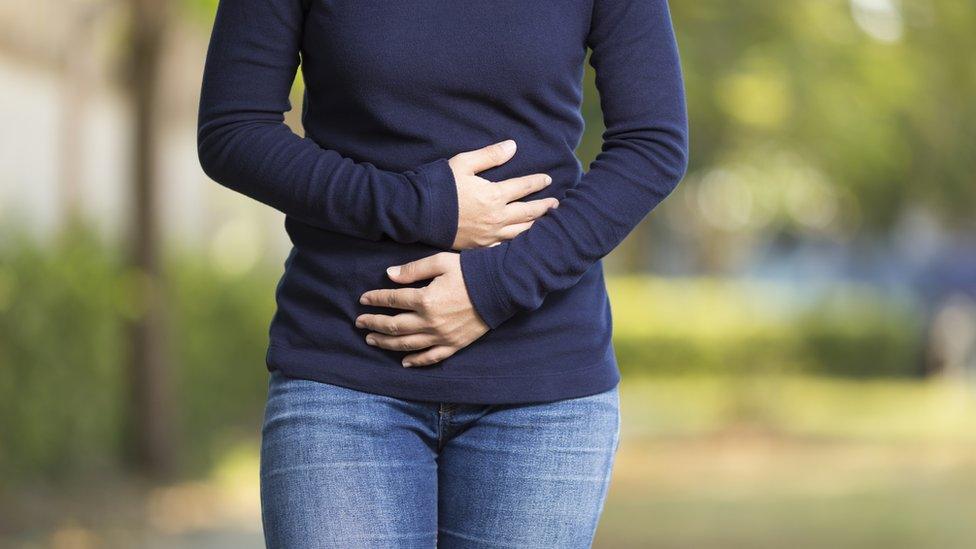Claim of 'professional conspiracy' against US mesh surgeon
- Published
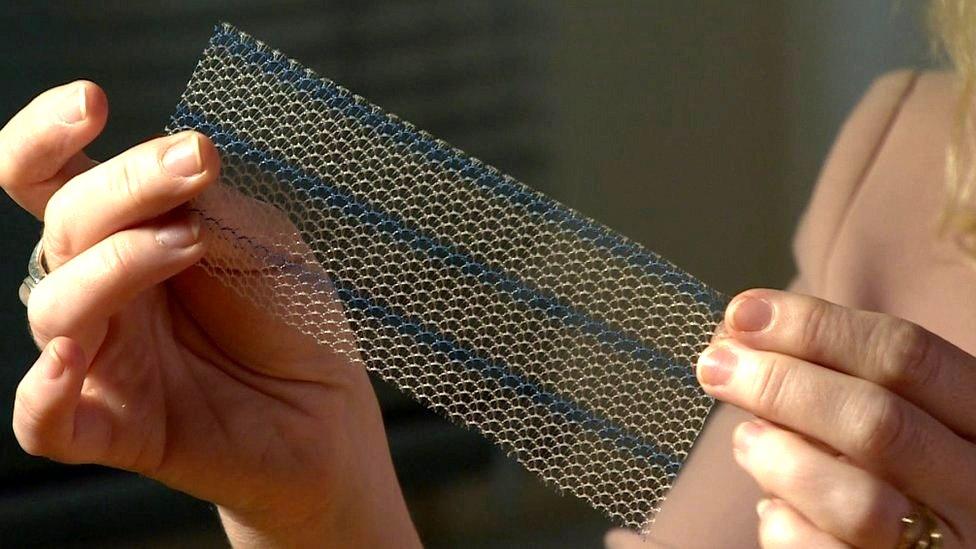
The mesh implants are used to ease incontinence and to support organs
A US vaginal mesh surgeon cancelled his trip to Scotland to help women affected by the surgery due to a "professional conspiracy" against him, it has been claimed.
Scottish Conservatives interim leader Jackson Carlaw demanded answers from First Minister Nicola Sturgeon after Dr Dionysios Veronikis withdrew his offer.
The clinician said he did not have time for games.
Ms Sturgeon said she was "not aware of evidence" that backed up the claims.
Campaigners had asked for Dr Veronikis to come from Missouri in the US after he successfully removed mesh from a number of Scottish women.
The mesh was often used to treat incontinence in women after childbirth.
Dr Veronikis said he offered to come to Scotland for a month to operate on women and train surgeons "in good faith".
But in a letter published in the Sunday Post, external he wrote: "[I] do not have the time to play games... After months of discussions I no longer believe officials... ever seriously tried to bring me to Scotland," he said.
He added: "I do not have time for interminable discussions and feel I must now withdraw my offer", adding: "with great regret, and frustration" he had cancelled his trip.
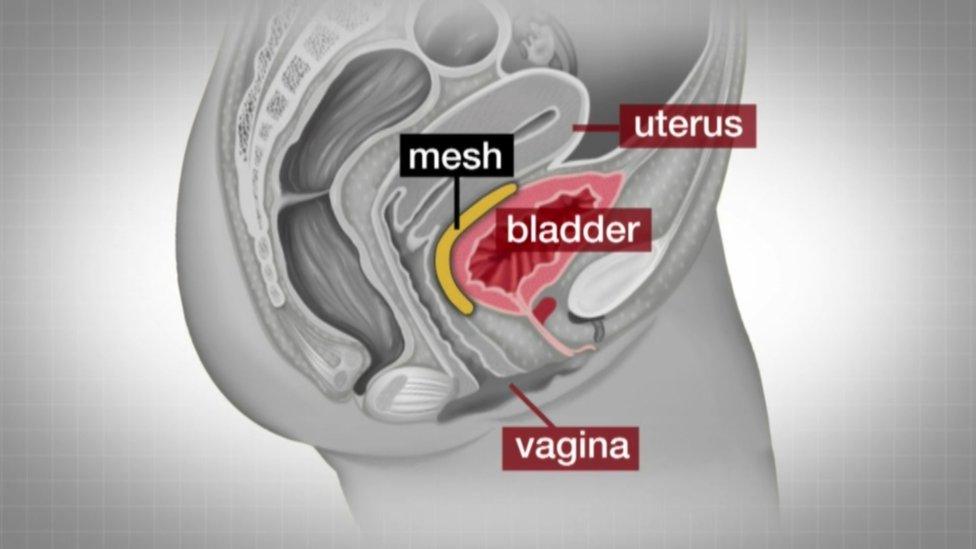
The mesh is made of polypropylene, a type of plastic
At First Minister's Questions, Mr Carlaw said Dr Veronikis had called off the visit "mostly it seems due to a co-ordinated attempt to block him by powerful people in the NHS and the medical hierarchy".
"The clear suspicion of many is that there is a professional and institutional campaign to frustrate Dr Veronikis' involvement," he said.
"It is the view of many that establishment figures in the NHS are trying to protect their own backs, and I exclude any blame or suggestion of it from the cabinet secretary personally here."
Mr Carlaw added that leading Scottish mesh expert Dr Wael Agur had told him how "surgeons here felt deeply threatened by Dr Veronikis' offer to visit Scotland" and that "no doubt there is a professional conspiracy against his visit".
He said that was an "outrage" and called on Ms Sturgeon to personally intervene.

What are mesh implants?
The mesh, usually made from synthetic polypropylene, is intended to repair damaged or weakened tissue
Over 20 years, more than 100,000 women across the UK had transvaginal mesh implants, which are used to treat pelvic organ prolapse (POP) and stress urinary incontinence (SUI), often after childbirth
While the vast majority suffer no side-effects, the use of mesh in Scotland was suspended except in "exceptional circumstances" in 2014 after it emerged some women suffered painful side-effects
However, the procedure been used hundreds of times since
Once the mesh is implanted, it is very difficult to remove

The first minister said she was "not aware of evidence" that backed up Mr Carlaw's claims of a conspiracy within the NHS.
But she told him: "If there is evidence I would certainly want to see that and be in a position to take action."
She also pledged to meet women affected by the mesh scandal personally.
She said Scots doctors had been due to travel to America to meet Dr Veronikis - one of the conditions necessary for him to obtain clearance from the General Medical Council to treat patients in the UK.
But a visit planned for August had to be postponed, due to commitments of the medics in Scotland.
Clinicians will visit the United States next month and want to meet Dr Veronikis if he is willing.
'First glimpse of hope'
Ms Sturgeon said it would not be acceptable for anyone in Scotland's medical community to block the visit.
She added: "Indeed it was the chief medical officer here who personally invited Dr Veronikis to come to Scotland and it remains our wish that that can happen."
Scottish Labour leader Richard Leonard told the first minister: "Dr Veronikis offered these women the first glimpse of hope that they might get their lives back.
"The world-leading, pioneering surgeon, who the health secretary invited to come here, now feels that the officials and senior surgeons in Scotland, working for our NHS accountable to your government, obstructed this course of action."
New figures have shown that no vaginal mesh implants have been carried out in Scotland since the chief medical officer announced a halt last October.
The government had asked health boards in June 2014 to consider suspending the use of mesh products but the procedure had still been used hundreds of times since.
- Published8 October 2019
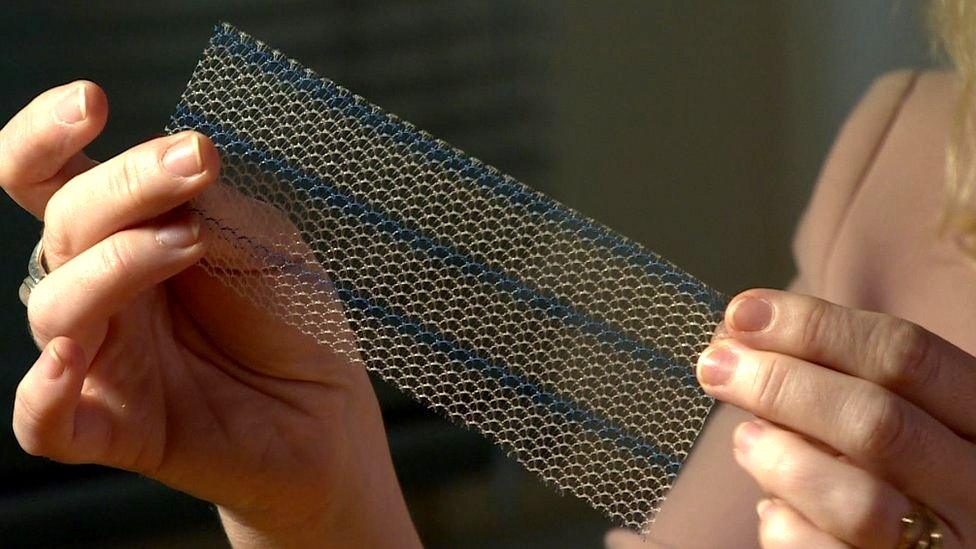
- Published6 October 2019
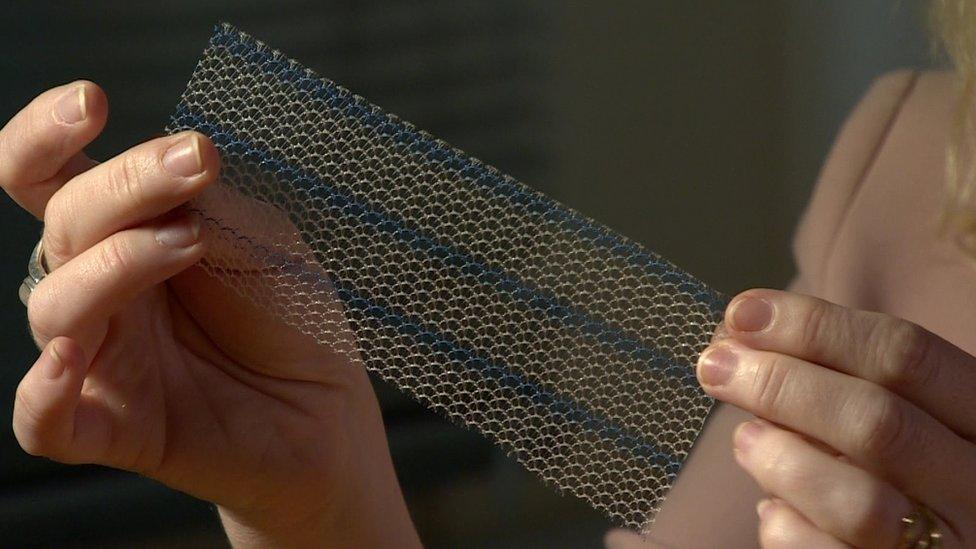
- Published5 March 2019

- Published12 September 2018
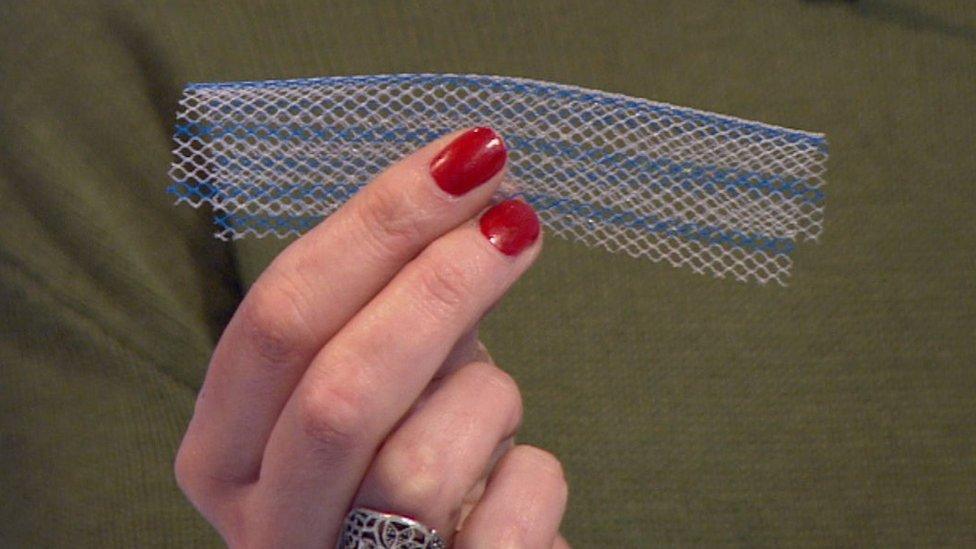
- Published6 September 2018
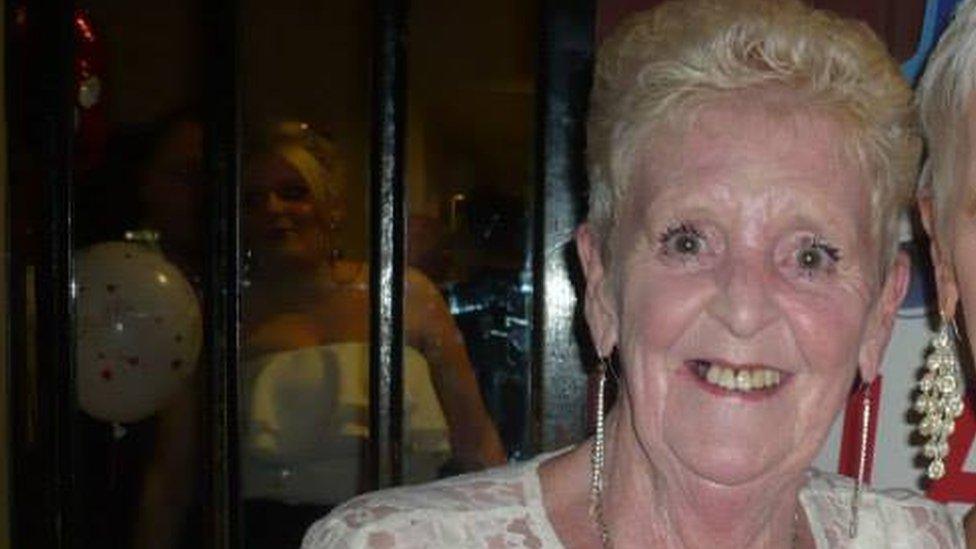
- Published19 December 2016
